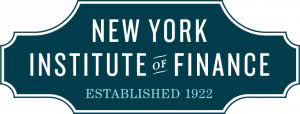Finance roles usually tend to be quite abstract. You spend most of your time poring over spreadsheets or communicating remotely with clients or other stakeholders. That’s just the way it is. But Project Finance just hits different because you get to work on real projects. Funding massive airports, seaports, commercial buildings, toll roads, renewable energy plants and things that you can see taking shape right in front of you. It feels real.
You still spend most of your time on modelling, structuring and arranging financing, but all your efforts are tied to a real-world project that you can see coming together. If you want to learn more about a career in Project Finance, then this linked article will guide you. I consider it to be one of the more interesting career options within Investment Banking. If you are already convinced that Project Finance is for you and are ready to start working towards it, then I have compiled a list of the best courses you can take to achieve that goal.
1. The Project Financier from Financial Edge
(Note: Use code BBD25 for 25% off at Financial Edge)
Course Review
 Financial Edge is an elite training provider that providers in-house training to recruits at some of the world’s top investment banks. They have created a similar online training program that offers the same quality and rigorous instruction to anyone in the world. Which is what makes this certification a good way to build up your Resume and showcase your skills to potential employers.
Financial Edge is an elite training provider that providers in-house training to recruits at some of the world’s top investment banks. They have created a similar online training program that offers the same quality and rigorous instruction to anyone in the world. Which is what makes this certification a good way to build up your Resume and showcase your skills to potential employers.
This certification gives you access to three core modules. Two of the modules focus on the basic skills necessary for project finance like modelling and financial statement analysis while the third focuses exclusively on project finance. You will learn how to build models quickly and without errors and in a way that is useful in the real world. All important elements like working capital, capital structure, account ratio, cash flow and income statements etc. are covered in detail.
The core project finance module is of course the main star of the show. The first few hours are spent on introductory concepts like the project finance process, contracts summary, mechanics, how it is different from other financing options, how risk is managed in project finance, how to measure and reduce risk and so on.
From there, we move on to the actual financing part with a look into loan syndication and the whole process works. As a banker, I can appreciate this focus on real world insights rather than just the theory. In the real world, you spend most of your day on these real issues and not just academic theory and I think this is what makes this course great.
But we are not done just yet. There is still a lot of discussions to be had on calculating returns, accounting, modelling, figuring out the credit covenants, ratios and everything else that goes into making a project a reality. The last few hours of the course are spent building real project financing models from start to finish. These real-world exercises are of critical important to you give you the confidence that you need to tackle these challenges head on while also helping you really cement all that you have learned thus far.
Click here and use code BBD25 for a 25% discount on all Financial Edge courses!
Summary
| Duration | Around 35 hours |
| Format | Fully online, on-demand |
| Level | Intermediate |
2. Project Finance and the Public Private Partnership Professional Certificate from NYIF
Course Review
Almost half of the time on this course is spent on real world case studies. That means you will have desk-ready skills which you can showcase during the hiring process, internships or on your first day at the job. Getting the relevant experience for a job role is a chicken and egg problem. Which is why consider this to be a major plus point of this course.
The course looks at the entire deal as it moves through the pipeline. You look at why Projects are Financed like this in the first place and how feasibility studies are performed, followed by an in-depth at the actual financing process including hedging and risk mitigation. Lastly, you have the project documentation and syndication process which is often overlooked in other courses but that is where you spend most of your time in real life.
At the end of the course, you have a certificate examination. This formal certification will go a long way in adding value to your CV and showcasing your commitment and interest in the field to potential recruiters. NYIF is a solid brand to have in your CV and this course is as good as it gets.
This is the only fully online course which matches the depth and quality of the in-person courses. Course has been specifically made for Project Finance and it oozes quality.
Summary
- Time to Complete: Around 17 hours.
- Available fully online and on-demand.
- The most comprehensive course on Project Finance from a finance perceptive.
3. Financing and Investing in Infrastructure from the University of Bocconi
Course Review
This is a short but equally sweet, beginner friendly course on infra financing form the prestigious University of Bocconi. If you need to start from the very basics, this course is it. It introduces the key concepts and then slowly builds on them throughout.
The first part of the course explores banking consortiums and the use Special Purpose Vehicles to finance technical projects. This is followed by a dive into the risk management aspects, the capital budgeting and allocation process, measurement performance and profitability and risk mitigation.
There are plenty of business case studies to whet your appetite and guest lectures from industry experts. There is a final quiz and you are awarded a formal certificate that can be used to build your CV and LinkedIn profile.
Summary
- Time to Complete: Around 25 hours.
- Available fully online and on-demand on the Coursera platform.
- A hybrid approach suitable for both on the finance or engineering side.
4. Financing and Initiating Major Engineering Projects from the University of Leeds
Course Review
This course dives deep into typical project financing approaches and investor styles. It is well suited for both project finance specialists and even those on the project management and engineering side. It’s a solid and comprehensive take on the subject of project financing.
Basic concepts like time value of money, IRR, NPV, Pay-back time etc. are explored in the introductory part of the course. Then you move on to other topics like stakeholder management, accurate estimations, governance, execution strategies, requirement management, asset and risk management, organisational design and so on.
This is a hybrid course that approaches things form the perspective of an engineer who wants to fund their project. However, it benefits bankers as well because you get to learn the exact challenges faced by those on the client side.
Summary
- Time to Complete: Around 25 hours.
- Available fully online and on-demand on the Coursera platform.
- A hybrid approach suitable for both on the finance or engineering side.
5. Project Finance: Funding Projects Successfully from TU Delft
Course Review
TU Delft is the premiere Dutch technological university and that project management perspective makes this course rather unique.The course is suitable both for bankers and corporate finance professionals desirous of understanding how financing is secured for projects.
All the usual Project Financing stuff like risk management, financial modelling, legal structures etc. are looked at across five modules. Technical and infra projects have rather unique financing requirements and risk properties and even experienced bankers would find the insights here helpful.
Additionally, you will also spend some time learning the legal structure for such projects. That is a very nice touch as the legal aspects are what really wrack your brain when undertaking such deals. Lastly, you work on an actual project financing model in Excel.
A completion certificate that you can use on your LinekdIn profile or add to your CV to showcase your knowledge. I continue to maintain that showcasing your skills is almost as important as having those skills in the first place if not more so. Personal branding is the key to success.
Summary
- Time to Complete: Around 25 hours.
- Available fully online and on-demand on edX.
- A unique perspective at financing from the Project Management side.
6. Project and Infrastructure Finance from LBS
Course Review
This course has been designed for experienced professionals who want to learn more about Project Financing. It provides valuable strategic insights from industry insiders.
The course provides a more strategic look at Project Financing rather than the financial modelling aspects of it. Which is why I would not recommend it for interns or entry-level analysts but for more senior level professionals.
You get to hear from Project Financing experts about their experiences of working with real projects and some nice case studies to grind your teeth on. It provides a decent networking opportunity as well.
Summary
- Time to Complete: Around 5 days.
- Available twice a year in London (check website for exact dates).
- Good if you have corporate sponsorship (its rather expensive).
7. Fundamentals of Project Finance from Fitch Learning
Course Review
A relatively short but good course that covers the basics of Project Financing rather well. I would recommend it as a sort of orientation course for new Project Finance professionals.
Concepts like project sponsorship, investment criteria, legal aspects are all covered. But the main focus of the project is on risk. You look at all the major risk components like operational risks, macroeconomic risks, counterparty risks, risks to project completion etc. There is a session on debt structure and documentation which is nice to see as that is what many new analysts are most clueless about.
Summary
- Time to Complete: 2 days
- Available in select cities like Singapore, London, New York and on specific dates (check website for specifics).
8. Project Finance Masterclass from Moody’s Analytics
Course Review
A comprehensive course on Project Finance that also focuses heavily on the risk aspects of the deal.Topics like financial modelling, stress tests, project viability studies, risks and project documentation are covered as well.
This course is also better suited for finance professionals who can secure a corporate sponsorship form their employers.
Summary
- Time to Complete: 3 days
- Available in select cities and on specific dates. Check website for specifics.


